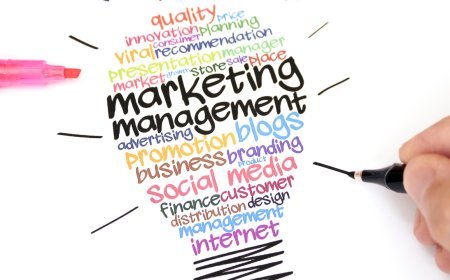B2B Marketing Strategies: Reaching Business Decision Makers
Learn effective B2B marketing strategies to reach business decision makers, generate qualified leads, and build long-term client relationships.

B2B marketing requires distinct strategies compared to consumer marketing due to its unique characteristics. For instance, B2B sales cycles are typically longer, involve multiple decision-makers, and feature higher transaction values. In addition, successful B2B marketing emphasizes building trust, demonstrating expertise, and delivering consistent value throughout extended buying processes. By addressing the specific needs of business customers, companies can foster stronger relationships and drive conversions.
Navigating the B2B Buying Process
Understanding the B2B buying process is crucial for creating effective marketing strategies. B2B purchases often involve multiple stakeholders, extensive research periods, and careful evaluation of options. Moreover, mapping content and touchpoints to different stages of the buying process ensures prospects receive relevant information when they need it most. This tailored approach supports complex decision-making journeys and enhances engagement.
Strategic Approaches to B2B Marketing
Account-Based Marketing (ABM)
Account-based marketing (ABM) is a highly effective strategy that focuses resources on high-value target accounts through personalized, coordinated campaigns. To begin, identify key accounts with significant opportunities, research their specific challenges and goals, and create customized content and outreach strategies. Another advantage of ABM is its ability to deliver higher ROI compared to broad-based marketing approaches, making it a powerful tool for B2B success.
Content Marketing for Trust and Expertise
Content marketing plays a pivotal role in B2B by emphasizing educational, problem-solving content that builds trust over time. For example, creating in-depth guides, whitepapers, case studies, and industry reports that address specific business challenges is essential. Furthermore, B2B buyers often consume multiple pieces of content before deciding, so maintaining a comprehensive content library is critical for sustained engagement.
Leveraging LinkedIn for B2B Outreach
LinkedIn stands out as the most effective social media platform for reaching B2B audiences. It offers sophisticated targeting options and professional networking opportunities. In addition, sharing thought leadership content, participating in industry groups, and utilizing LinkedIn’s advertising platform to target specific job titles, industries, or company sizes can generate high-quality leads. Compared to other social platforms, LinkedIn consistently delivers superior results for B2B marketing.
Engagement and Relationship Building
Email Marketing for Nurturing Relationships
Email marketing in B2B focuses on nurturing relationships over extended periods while providing ongoing value to busy professionals. For instance, creating educational email series that address industry trends and share relevant insights helps build trust without being overly promotional. Additionally, segmenting lists based on company size, industry, or buying stage ensures more relevant messaging, enhancing the effectiveness of campaigns.
Webinars and Virtual Events
Webinars and virtual events are particularly effective for B2B marketing, offering educational value while showcasing expertise to multiple decision-makers simultaneously. By hosting sessions that address common industry challenges, inviting expert speakers, and using interactive features, companies can engage participants effectively. Moreover, webinars often generate high-quality leads and provide opportunities for direct prospect engagement.
Trade Shows and Industry Events
Trade shows and industry events remain vital for B2B marketing, offering face-to-face networking opportunities and the chance to demonstrate products or services directly. To maximize impact, prepare strategic approaches, prioritize quality conversations over quantity, and follow up systematically with leads collected. Another benefit is the ability to build personal connections that strengthen business relationships.
Establishing Authority and Measuring Success
Thought Leadership Positioning
Thought leadership positioning establishes a business as an industry expert through speaking engagements, published articles, and media appearances. By developing unique perspectives on industry trends and sharing insights through various channels, companies can build recognition as trusted voices. Furthermore, thought leadership often influences B2B buying decisions more effectively than traditional advertising.
Case Studies and Customer Success Stories
Case studies and customer success stories provide powerful social proof by demonstrating real results achieved for similar businesses. For example, creating detailed case studies that outline client challenges, solutions, and measurable outcomes, complete with specific metrics and client quotes, builds credibility. Additionally, these stories resonate with prospects facing similar challenges, driving trust and interest.
Search Engine Optimization (SEO) for B2B
SEO for B2B targets keywords that business decision-makers use when researching solutions. Focusing on industry-specific terms, problem-based searches, and solution-oriented keywords, rather than general consumer terms, is essential. Moreover, B2B SEO requires technical, detailed content that addresses complex business needs, ensuring visibility to the right audience.
Optimizing Processes and Measuring Impact
Sales and Marketing Alignment
Aligning sales and marketing ensures consistent messaging and smooth transitions from marketing-generated leads to sales conversations. For instance, establishing clear lead qualification criteria, defining marketing qualified leads (MQLs) and sales qualified leads (SQLs), and maintaining regular communication between teams optimizes the handoff process. This alignment enhances efficiency and improves conversion rates.
Marketing Automation for Efficiency
Marketing automation streamlines complex, long-term nurturing sequences that support extended B2B buying cycles. By using behavioral triggers to send relevant content, scoring leads based on engagement and fit, and automating follow-up sequences, companies can maintain contact without overwhelming prospects. Furthermore, automation ensures efficiency while keeping campaigns personalized.
Measuring ROI and Attribution
Measuring ROI and attribution in B2B marketing is complex due to longer sales cycles and multiple touchpoints. Tracking leading indicators like content downloads, webinar attendance, and email engagement, alongside lagging indicators like sales conversions, provides a comprehensive view. Additionally, using multi-touch attribution models helps understand how various marketing activities contribute to eventual sales.
Accelerate your B2B growth with targeted marketing strategies! Connect with B2B marketing specialists on saneyou.com who understand complex business sales cycles and decision-making processes. Alternatively, post your B2B services to reach business decision-makers actively seeking solutions like yours.
What's Your Reaction?
 Like
0
Like
0
 Dislike
0
Dislike
0
 Love
0
Love
0
 Funny
0
Funny
0
 Angry
0
Angry
0
 Sad
0
Sad
0
 Wow
0
Wow
0









